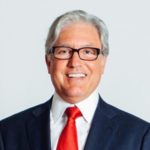- Calls to this hotline are currently being directed to Within Health or Eating Disorder Solutions
- Representatives are standing by 24/7 to help answer your questions
- All calls are confidential and HIPAA compliant
- There is no obligation or cost to call
- Eating Disorder Hope does not receive any commissions or fees dependent upon which provider you select
- Additional treatment providers are located on our directory or samhsa.gov
Having Hope with Anorexia: Encouragement for Sufferers, Family & Loved Ones – Part 1

The “Why Not’s” of Eating Disorder Treatment – Nutritional Deficiencies
I have worked in the field of eating disorders and depression for 31 years. Today, I want to talk about the word “hope” and the word “anorexia” and why we can bring those two words together.
Let me begin by telling you how, over 30 years ago, I stumbled into the treatment of eating disorders.
My first job in the mental health field was at a women’s prison. Straight out of the school, I had the privilege of being assigned to this position. I was put into the special needs section and, in the early 80’s, the special need section was 25 women at the center of the compound that were closely watched and, honestly, not trusted.
Here I am, young, out of school, and assigned to this section. I soon discovered that a lot of women in prison are suffering from some form of disordered eating. Some were choosing to starve or not to eat, and others had different reasons for their struggle with food and eating disorders.
I had what you could call a “captive” group with which to begin my work. Thinking back, there really wasn’t a lot of information out there about eating disorders in the early 80’s.
Two words the came up often in the medical literature related to eating disorders were “cunning” and “baffling.” These words came up so often because little was known about these disorders, and we didn’t know exactly how to treat them.
Another word I want to focus on is “suffering,” because that is what those individuals with an eating disorder experience.
We don’t know what path this disorder is going to take, is it going to get us out of a situation, is it a road of constant physical and brain deterioration, no matter what, it is likely a road marked with suffering.
Very early on, I developed a sense of passion in the quest for understanding what is really going on. I wanted to answer the question of how we reach into the heart and mind of a person suffering and show them that there are other options.
This was a time where medicine looked at these disorders as “cunning” and “baffling,” we didn’t really know what to do to treat them and didn’t even consider the word “recovery” yet.
In fact, it bothered me that, during this time, eating disorder patients were referred to as “revolving door patients,” meaning they are in-and-out of the hospital or care.
I remember being told by a practitioner that there really is no hope for a different life once an individual fully develops an eating disorder. The thinking at the time was that there is no way out and that most of these individuals would not survive.
This stunned me, a person that works with eating disorders lacking so much hope. So, back when I worked in the prison, I refused to fall into that line of thinking and went on a personal quest to learn what we can do to help a person struggling from an eating disorder.
We began to develop something that called the “Why Not” theory. This theory is, essentially, “if I can do something that doesn’t really have a downside but a possible good upside, why not do that?”
We began to look early on at the nutritional deficiencies of those suffering from an eating disorder. We began to look at what nutrients are missing. What if we replace those? What is going on in the stomach?
We began to wonder, if so much of our brain chemicals such as dopamine or serotonin are manufactured in our gut, then an individual with anorexia or bulimia isn’t producing these things and may have gut issues.
We asked ourselves, “what if we began to look at things such as probiotics?” This really gave way to us looking at the whole person in treating eating disorders and furthered the theory of “why not?”
We thought, “why not do all we can to take this thousand-piece puzzle and put it together? Why not use every piece?”
Now, working with some of these ladies in prison, for some, their eating disorder was a way of coping or exiting life. These ladies had this determination that there was no hope in even living.
Others were deeply wounded or traumatized in different ways. Others, still, didn’t honestly know why they were suffering from this disorder.
We get so wrapped up in understanding the “why,” but now that we have seen this disorder over more than 20 years, we can see that even those that don’t know why they developed an eating disorder can go on to live what I call “vibrant lives.”
Let’s talk about what my “why not’s” are, and what areas I make sure to look at and include in treatment.
This includes their emotional life such as relationships, both past, and present. It includes body chemistry as well as brain chemistry. I look at nutrient deficiencies, physiology, genetics, everything that could be influencing the body physically.
I’m going to consider spiritual areas such as faith and religion. I’ll consider intellect and education. I will also look at life purpose, meaning, what gives the individual direction. Sometimes, when we are in the cloud of an eating disorder, we can’t see our purpose.
Defining a purpose can be huge because it creates hope for the future that the individual will live a life free from their disorder with a deeper sense of purpose and mission that has personal meaning for them.
Healing is a quest where we look at every area of the whole person.
TO BE CONTINUED IN PART II…
Source:
Virtual Presentation by Dr. Gregory Jantz in the May 17, 2018, Eating Disorder Hope Online Conference II: Anorexia Hope & Healing in 2018.
Please view the press release Here.
Author:


As a freelance writer for Eating Disorder and Addiction Hope and a mentor with MentorConnect, Margot is a passionate eating disorder advocate, committed to de-stigmatizing these illnesses while showing support for those struggling through mentoring, writing, and volunteering. Margot has a Master’s of Science in Clinical Mental Health Counseling from Johns Hopkins University.
The opinions and views of our guest contributors are shared to provide a broad perspective of eating disorders. These are not necessarily the views of Eating Disorder Hope, but an effort to offer a discussion of various issues by different concerned individuals.
We at Eating Disorder Hope understand that eating disorders result from a combination of environmental and genetic factors. If you or a loved one are suffering from an eating disorder, please know that there is hope for you, and seek immediate professional help.
Published on September 14, 2018.
Reviewed & Approved on September 14, 2018, by Jacquelyn Ekern MS, LPC
Published on EatingDisorderHope.com


